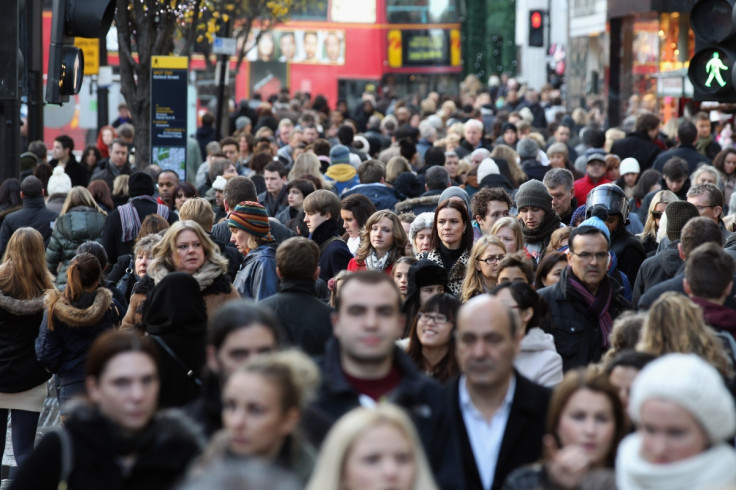UK population to grow by 10 million by 2039 with immigrants making up half of increase

Immigrants are to make up half of the UK's population increase in the next 25 years, according to new ONS figures. The figures show that the UK's population is expected to climb to 74.3 million by 2039, up from an estimated 64.6 million in 2014.
According to the report 51% of that increase will be made up of people entering the UK from other countries. The remaining increase is expected to result from an increase to the birth rate relative to the death rate.
The projection puts Britain on course to become Europe's most populous country. The population of Germany, currently Europe's most populous country with 81.1 million, is set to fall below the UK's by 2047, according to population projections from both countries.
The ONS population projections are released every two years ago. It said that population is now rising at a faster rate than when it released its last report in 2012, with Britain's population expected to stand at 69 million people by 2024, an increase of more than 250,000 on the number predicted two years ago. If the number of immigrants arriving and having children of their own is taken into account, net migration will account for up to two thirds of the population increase, according to the ONS.
Guy Goodwin, ONS director of social and analysis, said: "Growth will be at a faster rate than we have seen previously, largely due to the direct impact of international migration and the indirect impact of immigration.
"Despite this, the population will also be older as those born shortly after World War II and during the 1960s 'baby boom' reach the oldest and pensionable ages respectively."
The study predicts that Britain will be made up of an increasingly ageing population in the coming decades, with the number of over 75s almost doubling from 5.5 million to 10 million, and one in 2012 projected to be aged 80 or over.
It predicts that in three and a half decades the number of people of retirement age or over to the number of people of working age will rise from 310 to 1,000, to 370, placing an additional burden on workers via national insurance and tax.
© Copyright IBTimes 2025. All rights reserved.






















